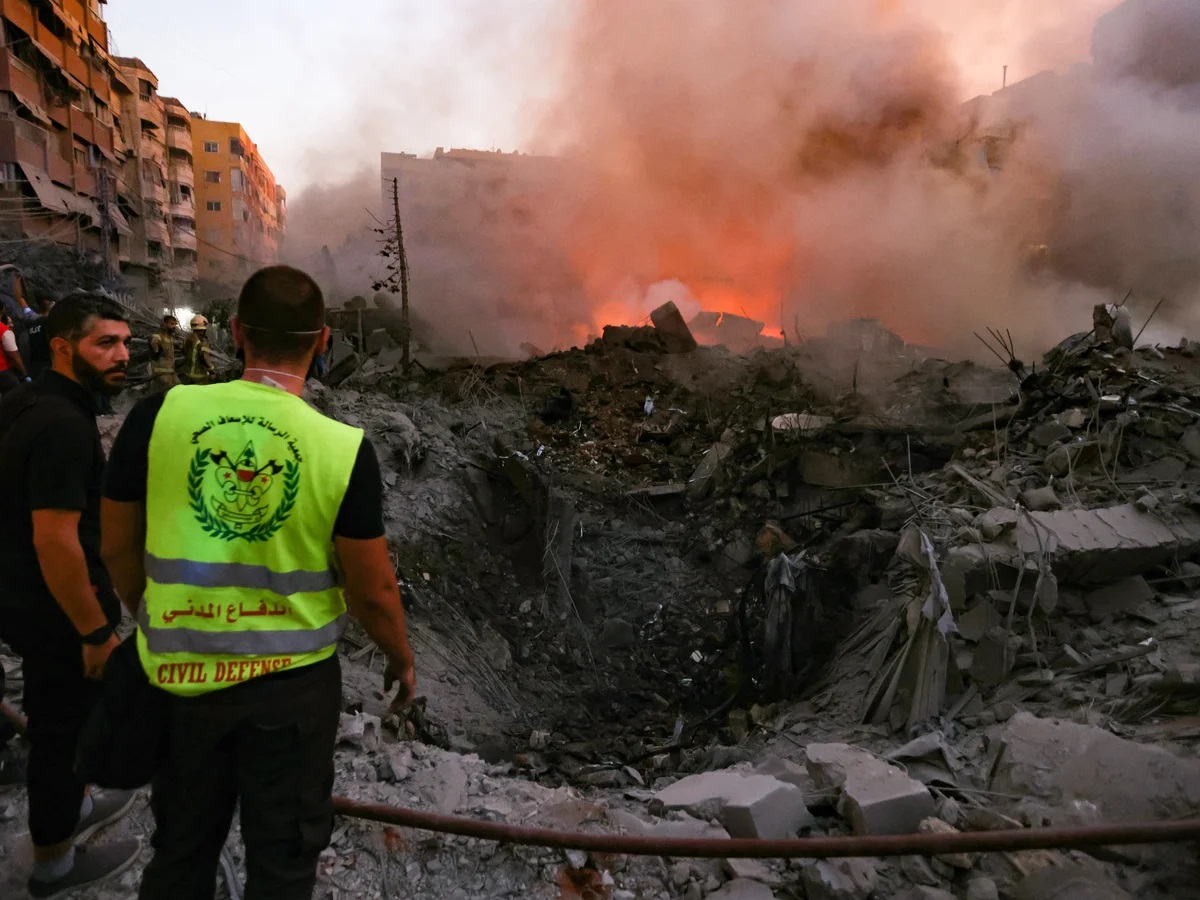Israel launched a series of airstrikes across southern Lebanon on Thursday, May 22, 2025, killing one person and injuring another, just days before the region was scheduled to hold its first municipal elections in over nine years.
The strikes added to the tensions surrounding the vote, which has already been delayed due to security concerns and logistical challenges.
The Israeli attacks began in the afternoon and included a targeted strike on the town of Toul, located near the city of Nabatieh.
Prior to the strike, the Israeli military issued an evacuation warning, urging residents to move at least 500 meters away from a designated building.
Israel claimed the structure was a Hezbollah facility, identifying the group as an Iran-backed militia.
Toul was only the beginning, as airstrikes later hit at least five other towns across southern Lebanon.
Among those killed in the strikes was reportedly a member of Hezbollah’s elite Radwan commando unit, according to Israeli statements.
Israel has continued its near-daily aerial operations in Lebanon.
This is despite a ceasefire agreement signed in November 2023 that ended a weeks-long conflict between Israel and Hezbollah.
That war was triggered when Hezbollah fired rockets into Israel on October 8, a day after the Hamas attack on Israel.
Israel has maintained that its ongoing military actions are necessary to prevent further ceasefire violations.
Lebanon, however, sees the strikes as a clear breach of its sovereignty.
It also argues that any ceasefire violations should be addressed through the international monitoring committee established as part of the November truce.
Lebanese Prime Minister Nawaf Salam strongly condemned Thursday’s strikes, describing them as especially dangerous given the political climate.
His office said in a public statement:
“Prime Minister Salam stresses that these violations will not thwart the state’s commitment to holding the elections and protecting Lebanon and the Lebanese.”
The upcoming elections are critical for Lebanon.
Municipal polls have not been held since 2016 due to financial constraints and the recurring conflict with Israel.
The vote in southern Lebanon represents the fourth round of municipal elections, which began in early May and have proceeded region by region each weekend.
Lebanese authorities view these elections as a vital step in rebuilding the state’s institutions and asserting central government authority.
Both views have been severely weakened in the past two decades as Hezbollah’s influence has grown.
The post-ceasefire government has prioritized state-building and restoring its exclusive right to use force, challenging Hezbollah’s long-standing dominance.
The political environment in Lebanon is heavily shaped by sectarian divisions, with voting patterns often determined by a mix of religious affiliation and regional loyalties.
So far, elections in other parts of the country have favored traditional political parties.
In particular, the Christian Lebanese Forces have experienced a modest surge in support.
However, the situation in southern Lebanon is unique.
The area has historically been a Hezbollah stronghold, but the recent war with Israel has taken a heavy toll on its support base.
Numerous towns in the region were reduced to rubble, and much of the promised reconstruction aid from Hezbollah has yet to arrive.
This delay is attributed to financial constraints, as the Lebanese government has tightened control over the Syria-Lebanon border and Beirut airport.
Both regions were previously used by Hezbollah to facilitate funding.
These circumstances have cast the southern elections as a de facto referendum on Hezbollah’s local authority.
The group’s diminished capacity to deliver on its wartime promises may weaken its standing among its traditional supporters.
In response to the stakes, Hezbollah’s deputy leader, Naim Qassem, issued a rallying cry to the group’s base.
He urged them to turn out in large numbers on election day.
He called for a “resounding” victory to reinforce Hezbollah’s influence in the south despite mounting domestic and international pressure.
The elections are scheduled to proceed on Saturday.
Also, their outcome is expected to have significant implications not only for local governance but also for the broader balance of power within Lebanon’s fragile political landscape.







